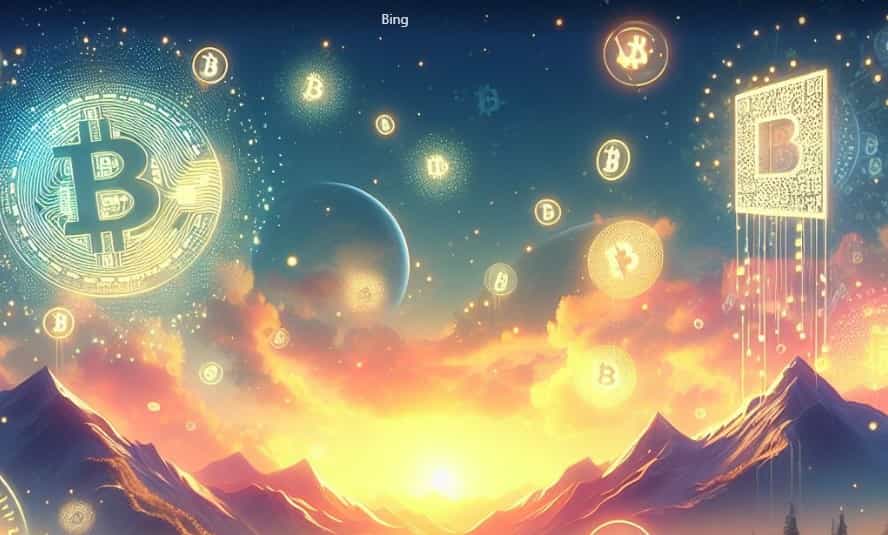The Bitcoin network, renowned as the cryptocurrency pioneer, has historically been lauded for its simplicity and security. However, it initially lacked the capacity for complex functionalities like smart contracts and decentralized applications (dApps) that have since become integral to the blockchain landscape.
In this article, we delve into the evolution of smart contracts on the Bitcoin network, their pivotal role, and the innovative solutions that have emerged to bridge this gap. In addition, if you are looking for a free and easy-to-use website that helps people find an education company to start learning about investments, you may visit immediate-smarter.com.
Understanding Smart Contracts
1. Definition and Concept of Smart Contracts
Smart contracts are self-executing agreements with the terms of the contract directly written into code. These contracts automatically enforce and execute the terms when predefined conditions are met. Ethereum, another prominent blockchain, was the first to introduce smart contracts, enabling a wide range of decentralized applications.
2. Ethereum vs. Bitcoin: A Brief Comparison in Terms of Smart Contracts
Ethereum’s development involved enabling smart contracts from the outset, allowing for many apps. In contrast, Bitcoin’s primary focus was on being a digital currency. Bitcoin’s scripting language was intentionally limited to maintain security and avoid potential vulnerabilities.
3. Bitcoin’s Limitations for Smart Contracts
Bitcoin’s limitations for smart contracts stem from its design. While providing some flexibility, its scripting language is intentionally limited to prevent potential security risks. This design choice makes Bitcoin less versatile than Ethereum for executing complex smart contracts.
The Rise of RSK (Rootstock)
1. Introduction to RSK and Its Connection to Bitcoin
Rootstock (RSK) emerged as a solution to bring smart contract capabilities to the Bitcoin network. RSK is a sidechain of Bitcoin, meaning it operates alongside the main blockchain, enabling compatibility with Bitcoin’s assets and security.
2. How RSK Enables Smart Contracts on the Bitcoin Network
RSK introduced the Ethereum Virtual Machine (EVM) to the Bitcoin network, replicating Ethereum’s smart contract functionality. This enables developers to create and execute smart contracts on the Bitcoin network, benefiting from Bitcoin’s security and RSK’s capabilities.
3. Advantages of Using RSK for Smart Contracts
- Security: RSK leverages Bitcoin’s robust security infrastructure, providing a secure environment for smart contracts.
- Interoperability: RSK allows for the easy transfer of assets between Bitcoin and RSK, enabling a seamless user experience.
- Bitcoin Compatibility: RSK is compatible with existing Bitcoin tools and infrastructure, making it more accessible to developers.
Use Cases of Bitcoin Smart Contracts
1. Financial Applications: DeFi on Bitcoin
Decentralized Lending and Borrowing: Bitcoin smart contracts enable decentralized lending and borrowing platforms, allowing users to borrow assets without intermediaries.
Automated Trading Platforms: DEXs (Decentralized Exchanges) built on Bitcoin offer automated trading and asset swapping.
Also See: 12 Gemini: Buy Bitcoin Instantly
2. Supply Chain and Logistics
Tracking and Verifying Product Authenticity: Bitcoin smart contracts are used to track and verify the authenticity of products in supply chains, reducing counterfeiting.
Reducing Fraud and Counterfeiting: Smart contracts on the Bitcoin network can enhance transparency and traceability in supply chains, reducing fraud.
3. Identity Management
Self-Sovereign Identity on Bitcoin: Bitcoin’s robust security can be leveraged for self-sovereign identity solutions, where individuals control their data.
Privacy and Security Considerations: Bitcoin’s privacy features can be integrated into identity solutions, enhancing user protection.
Building Decentralized Applications on Bitcoin
1. Overview of Decentralized Applications (dApps)
Decentralized applications (dApps) are applications that run on blockchain networks. They are trustless, meaning they operate without centralized control. Bitcoin’s introduction to smart contracts has opened the door to creating dApps on its network.
2. Development Frameworks for Bitcoin dApps
Several development frameworks and tools are available for building dApps on Bitcoin, including RSK’s developer ecosystem, which provides resources and support for developers.
3. Case Studies of Successful Bitcoin dApps
Examples of successful Bitcoin dApps include decentralized exchanges, lending platforms, and non-fungible token (NFT) marketplaces, demonstrating the diverse potential of the Bitcoin network.
Also See: 10 Apps Like Free Bitcoin Fake Bank
Challenges and Future of Bitcoin Smart Contracts
1. Scalability and Transaction Costs
One challenge of Bitcoin smart contracts is scalability, as the network’s limited block size can result in congestion during high-demand periods. Additionally, transaction costs can be high during peak usage.
2. Regulatory and Legal Considerations
The legal and regulatory landscape for Bitcoin smart contracts varies by jurisdiction and may impact their adoption. Compliance with local laws and regulations is essential for developers and users.
3. Innovations and Developments in the Bitcoin Ecosystem
Ongoing innovations in the Bitcoin ecosystem, such as the Lightning Network and further advancements in layer-2 solutions, aim to address scalability and transaction cost issues, making smart contracts even more practical on the network.
Conclusion
In conclusion, smart contracts and decentralized applications have brought a new dimension to the Bitcoin network, expanding its utility beyond digital gold to a programmable financial and non-financial transactions platform. Introducing RSK and other solutions has made Bitcoin a formidable player in smart contracts. As the Bitcoin ecosystem continues to evolve, its potential impact on the blockchain industry and beyond is substantial, promising exciting developments in the coming years.
